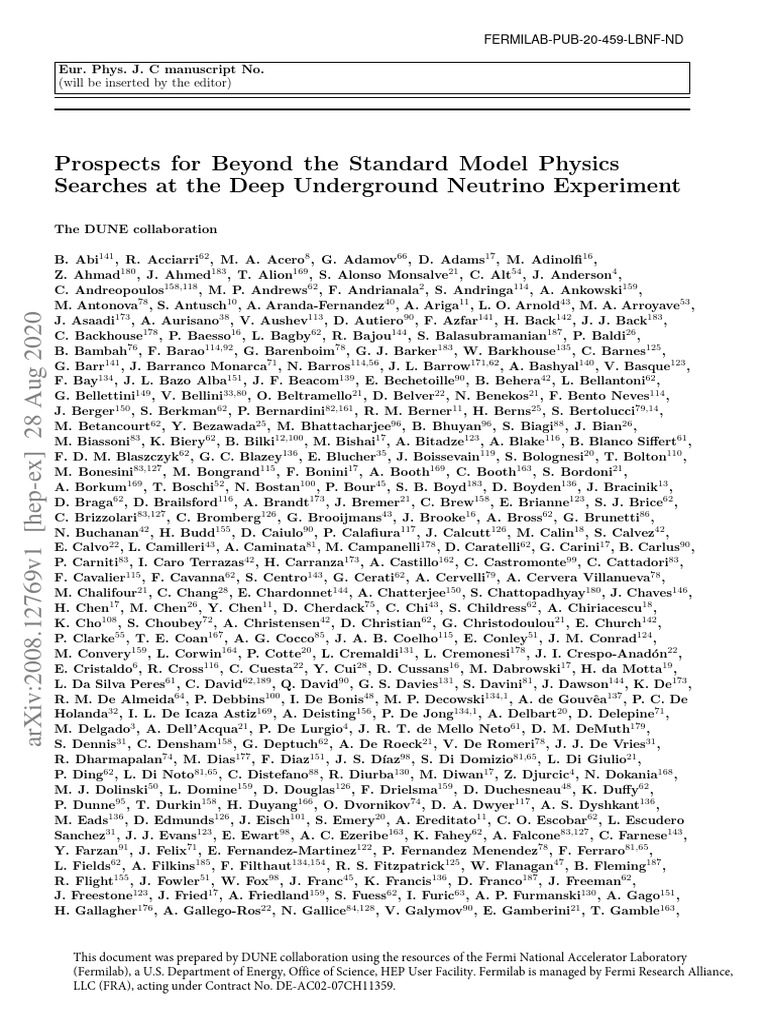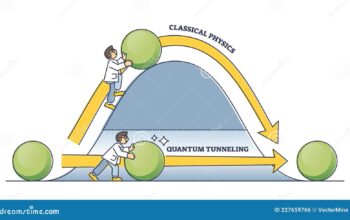The realm of particle physics continually engenders excitement and curiosity, particularly in the field of neutrino research. The ongoing investigations at Fermilab, America’s premier particle physics laboratory, have recently faced a significant impediment. Fermilab has been directed to decelerate its ambitious neutrino endeavors following the prolonged scrutiny of the scientific community, funding authorities, and administrative bodies. This decision has elicited a mixture of concerns and intrigue, underscoring an observation prevalent among physicists: the entanglement of scientific progress with political and financial realities.
Neutrinos, often referred to as the “ghost particles,” are fundamental constituents of the universe, characterized by their elusive nature. They interact only through the weak nuclear force, making them extraordinarily difficult to detect and study. Large-scale neutrino experiments, such as those proposed and underway at Fermilab, have the potential to unravel profound mysteries regarding the universe’s composition, the existence of dark matter, and the fundamental asymmetry between matter and antimatter. The operations at Fermilab have garnered international attention as researchers seek answers to some of the most pressing questions in physics.
However, the recent directive to rein in neutrino initiatives shines a light on an intricate dichotomy: the exhilarating pursuit of knowledge juxtaposed against fiscal prudence. Fermilab, despite its status as a leading scientific institution, must operate within the constraints imposed by budgetary allocations that can fluctuate based on the prevailing political climate. The federal funding landscape for scientific research is often tumultuous, influenced by shifting priorities and public sentiment regarding national issues. In this context, the decision to halt or slow aspects of the neutrino program may reflect deeper currents rather than mere logistical considerations.
Critics have raised questions about the overarching accountability of large-scale scientific projects. As excitement builds around the potential discoveries stemming from neutrino research, the demand for tangible results also escalates. Large investments in research necessitate justification, and administrators may feel pressured to divert focus toward projects that exhibit immediate and quantifiable outcomes. This dynamic raises critical questions about the trajectory of fundamental research. Is society prepared to support the lengthy timelines and inherent uncertainties associated with probing the subatomic, even when the potential rewards are transformative?
The fascination with neutrinos also springs from their apparent paradoxes. Neutrinos exhibit an astounding variety in their flavors: electron, muon, and tau neutrinos, which oscillate among themselves. This phenomenon, known as neutrino oscillation, signifies that these particles have mass, a revelation that has far-reaching implications for the Standard Model of particle physics. The pursuit of a more intricate understanding of neutrinos could lead to revolutionary insights into the foundational principles underpinning matter and energy. Yet, the intricate nature of neutrinos also demands patient and rigorous investigation, spanning years or even decades to yield definitive breakthroughs.
Amid these scientific aspirations lies the intricate social fabric of the scientific community. Communication strategies employed by researchers often oscillate between unbridled enthusiasm for current pursuits and circumspect presentations of potential results. Public engagement with science hinges on transparency and accessibility, forming an essential interface between complex research and societal support. Fermilab’s poised halt raises concerns regarding the messaging—will the public perceive this slowdown as a necessary pause for reflection or as a signal of diminished commitment to scientific exploration? Such narratives shape funding prospects and public interest, fundamentally underpinning the advances in physics.
The decision to slow down neutrino research also invites reflection on the wider implications of scientific exploration. The urgency surrounding technological development and innovation fosters a culture that prioritizes expedience over depth. The pursuit of groundbreaking discoveries often hinges on idyllic patience, requiring a delicate balance between ambition and prudence. This intricate dance has become increasingly precarious, as the rarity of transformative findings prompts both excitement and skepticism within academia.
In parallel to this discussion is the sociopolitical context in which such decisions are made. The preponderance of funding comes from governmental bodies that operate under political scrutiny. Shifts in political priorities can drastically alter the landscape of funding for scientific programs, engendering uncertainty among researchers who rely heavily on grants. Thus, the nexus between the political milieu and the pursuit of knowledge opens a dialogue about the autonomous spirit of scientific inquiry and the pragmatic constraints it faces in a democratic landscape.
As Fermilab recalibrates its approach to neutrino research, it may serve as a pertinent case study for the intersection of fiscal realities, public interest, and the pursuit of knowledge. The fascination with neutrinos transcends the physical properties of these particles; it reflects a broader narrative about humanity’s relentless quest to fathom the universe. Thus, while the experimental ambitions may be momentarily curbed, the underlying endeavor—to unlock the secrets of existence—remains undiminished. The scientific community must harness this hiatus as an opportunity for introspection, fostering an enduring commitment to both discovery and the ethical stewardship of research funding. Navigating this path will be crucial as it addresses the balance between ambition and the accountability necessary to secure the future of fundamental physics.












